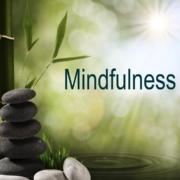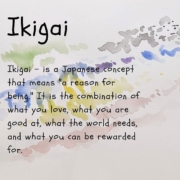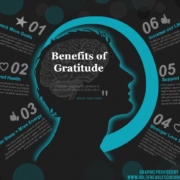Last week I posted a mindfulness mantra. The feedback was interesting, but not unexpected.
Every time I mention mindfulness, I typically hear a few common responses:
• “Do you really think I have time in my day to sit and do nothing but focus on my breath?”
• “I cannot stop my thoughts; my brain is on overload, meditation makes it worse.”
• “I think I might have ADD every time I try to quiet my mind a million thoughts start to ping pong around my head.”
• “The last thing I need is something else on my to-do list. I already feel guilty for everything I don’t get done.”
I get it. I really do I forget to be mindful all the time. My mind wanders constantly. I get to the end of a shower and my hair is wet but I’ve been so busy rehearsing a presentation or recalling yesterday’s meeting that I have no idea if I’ve actually washed my hair. And yet I still maintain that I practice “presence” on a daily basis. I prefer the term presence, it’s not as loaded as the word mindfulness.
Presence is a bit of mindfulness mixed with emotional intelligence. It’s as simple as showing compassion to the elderly person at the checkout line who moves too slow. It’s not judging yourself and others when you make a mistake. It’s having empathy for the rude waitress who is having a bad day. It’s being grateful for the small things, like when your husband sets out the deck furniture even though he knows it’s a bit too early in the season. Throughout my book, Practicing Presence I provide practical, sustainable present moment practices. Trust me, I’m not some sort of blissed-out Dalai Mama that spends my day gazing at my navel on a mountain. My life is one darn thing after another, but whatever comes my way I think of as just more practice.
5 reasons you might be having a hard time getting started, and what you can do about it:
1. You don’t quite understand what mindfulness is. Mindfulness is not about being perfectly present and focused at all times, or even being able to sustain one’s attention for extended periods (although that’s nice when it happens). It’s not about moving through life in a happy haze, either. Mindfulness is about choosing to pay attention to the present moment with kindness and curiosity. If you find yourself corralling your attention 60 times a minute, you’re not failing at mindfulness. You’re practicing it.
2. You’re forgetting to be curious. Here’s the reality of mindfulness: Sometimes the present moment isn’t so pleasant. It’s easy to pay attention to a sunset or a newborn baby, but many of the details of daily life are far less enjoyable. The news is depressing, your work is endless, and the damn clothes have once again failed to wash and dry themselves. And so our attempts to be present can quickly dissolve. But that’s not mindfulness. That’s just our mind thinking and judging, and scanning for what’s wrong, because that’s what our minds were designed to do. But what if we decide to stop wishing our reality was different, and instead notice what’s happening and maybe even get curious about it? I’ll tell you what happens. We lose our keys less. We learn that our coworker’s mother has Alzheimers, and we feel a bit more empathy for her. We remember what it was like to be up all night with a child or aging parent and we give others a break. Life feels just a little bit easier and we tend to be a bit kinder.
4. You forget that change is a process, not an event. Many of us come to mindfulness because we want to change something about ourselves. And while mindfulness can certainly be helpful in difficult moments, our brains have a hard time learning or doing something new when they’re under stress or flooded with emotion. The more you practice paying attention to the present moment when you’re calm and content, the easier and more effective your mindfulness practice will be when you’re stressed out. Try making your log in passwords cue words that remind you to practice. Here are some examples; breathe, inhale, exhale, presence, grateful, forgive, let go, relax, sigh, smile.
5. You don’t have a routine. There’s a saying in the mindfulness world: “Practicing mindfulness is easy. Remembering to practice mindfulness is hard.” I suggest putting in rituals or routines in the midst of your day to practice present moment pauses. It’s a simple as sitting at a red light and breathing in for four, pausing for four and exhaling for four instead of to checking your cell phone.










Leave a Reply
Want to join the discussion?Feel free to contribute!